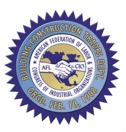Safety & Health Resources
What to know if you get injured: This past legislative session saw the passage of several new laws—some of which could put your benefits at risk if you aren’t aware of them. We hope you never need any of this information, but if you are injured on the job, remember these new changes before you discuss your injury with your employer. Compromise and Release Beginning January 1, 2012, injured workers age 55 or older will have a new option (expanded to workers age 53 and older in 2015 and age 50 and older in 2016). After this date, these workers with an allowed claim will be able to work with either their self-insured or state fund employer to negotiate a lump-sum settlement for their claim. For some workers this may be a good option – but for many workers, the settlement will be for fewer benefits than they are entitled to. We are very worried about how employers may abuse this process, leaving injured workers without the benefits they are owed or the medical care they need. This legislation was crafted quickly and without sufficient stakeholder input, then enacted without any public hearing—all over the objection of workers and their representatives. There are several issues we want you to be aware of before they put you at risk. Know your rights. Talk to your representative.
When you are seriously injured on the job, you have many concerns—when, how and whether you will get back to work; getting the treatment and care you need for your injury; paying your bills; taking care of your family. Workers’ comp exists so that you are at least sure to make it through this difficult time without the ruin of your health and financial safety.
Imposing a lop-sided settlement negotiation into this difficult time is a dangerous proposition – especially because it is sometimes impossible to know the extent of an injury for a long period of time. We are very worried that employers will abuse and coerce workers who are scared for their jobs and in a time of physical and financial duress. It is highly recommend that before entering into negotiations for a settlement and certainly before finalizing one that you talk to an attorney or at least your union rep. And that you do not enter into a settlement negotiation before you and your doctor are confident of the extent of your injuries.
Additionally, the following were also enacted earlier this year by the Legislature and you should be aware of:
Medical Provider Network
L&I is establishing a medical provider network for physicians and other health care providers who treat injured workers. Medical providers will be required to meet specific network requirements but it is hoped that most providers will participate in the network. As an injured worker you are not required to go to a network provider for the initial medical visit following an industrial injury. After the initial visit, you can choose any provider within the network.
Stay-at-Work Program
Employers are now eligible to be reimbursed by L&I for up to 50% of your wages if they provide you with appropriate transitional light duty work. This transitional light duty job must be approved by your attending physician.
Permanent Partial Disability Benefits
For workers injured on or after June 15th of this year, the 8% interest applied to the unpaid balance of Permanent Partial Disability (PPD) awards has been eliminated. For an injured worker who is found permanently and totally disabled and awarded a pension, any prior PPD awards paid under the claim or claims that give rise to the pension will be deducted from the worker’s pension benefits.
Cost-of-Living Adjustments
The legislature froze COLAs for pension benefits and Temporary Total Disability (time loss) benefits for one year. This means that pension and timeloss benefits did not increase on July 1, 2011. Additionally, the first COLA increase following an industrial injury is delayed to the second July 1 following the injury.
If you have questions about any of these programs, contact Project Help at 1-800-255-9752. They will be able to provide you with more information about your workplace injury claim. See below.
Project HELP can assist you Project Help is a resource for injured workers that provides information and assistance regarding their entitlements under the Workers' Compensation Laws of Washington State. Their priority is to resolve claim issues by providing accurate and timely information about the injured workers' rights and responsibilities under the Law. All of the services provided by Project Help are available free of charge - no cost to injured workers. Project Help provides workers with access to information about the claim process, as well as a patient listener who understands the frustrations with the system. They communicate directly with department claim managers and supervisors, and their inquires are considered a priority. If Project Help cannot resolve your issue they will provide you with a list of attorneys in your area. You can reach Project Help at a toll-free number, 1-800-255-9752. Project Help also presents workshops for local unions on "How the System Works" providing an overview of workers' compensation. The Center to Protect Workers' Rights was founded by the National BCTD as its research, development, and training arm. CPWR works with Building Trades workers, contractors, experts in government and at universities nationwide, and others to develop practical ways to prevent injuries, illnesses, and deaths on the job. The goal is to improve the quality of life for construction workers and their families, while refining best practices, and improving industry productivity. Access to free trainings, publications on advanced safety protocols and more can be found on their website http://www.cpwr.com/indexstart.html
Page Last Updated: Feb 17, 2016 (11:04:00)
|
|










